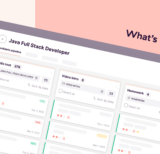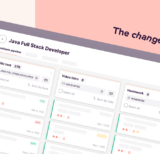NEW! Introducing Homeworks to Assessment Library
7 min read
Improve your hiring process with Toggl Hire. Explore tips, tools, and best practices for efficient recruitment and finding top talent effortlessly.
Here are our top articles starting from the basics.

We closed 2022 with a bang. While the focus...

Skills testing started as an alternative screening method for...

Welcome to another quarterly update! Before filling you in...

Welcome back! Did you miss our quarterly updates? We...